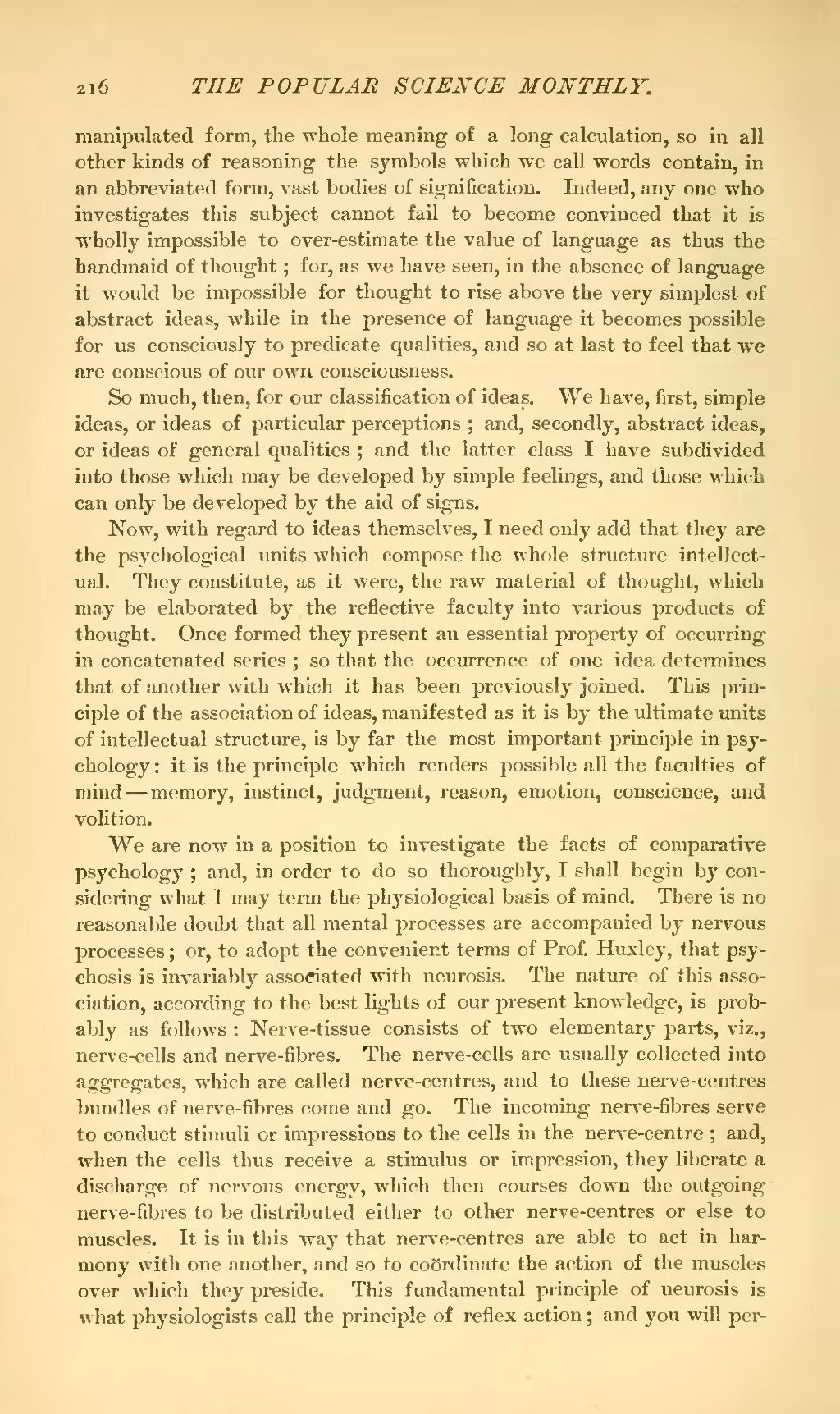manipulated form, the whole meaning of a long calculation, so in all other kinds of reasoning the symbols which we call words contain, in an abbreviated form, vast bodies of signification. Indeed, any one who investigates this subject cannot fail to become convinced that it is wholly impossible to over-estimate the value of language as thus the handmaid of thought; for, as we have seen, in the absence of language it would be impossible for thought to rise above the very simplest of abstract ideas, while in the presence of language it becomes possible for us consciously to predicate qualities, and so at last to feel that we are conscious of our own consciousness.
So much, then, for our classification of ideas. We have, first, simple ideas, or ideas of particular perceptions; and, secondly, abstract ideas, or ideas of general qualities; and the latter class I have subdivided into those which may be developed by simple feelings, and those which can only be developed by the aid of signs.
Now, with regard to ideas themselves, I need only add that they are the psychological units which compose the whole structure intellectual. They constitute, as it were, the raw material of thought, which may be elaborated by the reflective faculty into various products of thought. Once formed they present an essential property of occurring in concatenated series; so that the occurrence of one idea determines that of another with which it has been previously joined. This principle of the association of ideas, manifested as it is by the ultimate units of intellectual structure, is by far the most important principle in psychology: it is the principle which renders possible all the faculties of mind—memory, instinct, judgment, reason, emotion, conscience, and volition.
We are now in a position to investigate the facts of comparative psychology; and, in order to do so thoroughly, I shall begin by considering what I may term the physiological basis of mind. There is no reasonable doubt that all mental processes are accompanied by nervous processes; or, to adopt the convenient terms of Prof. Huxley, that psychosis is invariably associated with neurosis. The nature of this association, according to the best lights of our present knowledge, is probably as follows: Nerve-tissue consists of two elementary parts, viz., nerve-cells and nerve-fibres. The nerve-cells are usually collected into aggregates, which are called nerve-centres, and to these nerve-centres bundles of nerve-fibres come and go. The incoming nerve-fibres serve to conduct stimuli or impressions to the cells in the nerve-centre; and, when the cells thus receive a stimulus or impression, they liberate a discharge of nervous energy, which then courses down the outgoing nerve-fibres to be distributed either to other nerve-centres or else to muscles. It is in this way that nerve-centres are able to act in harmony with one another, and so to coördinate the action of the muscles over which they preside. This fundamental principle of neurosis is what physiologists call the principle of reflex action; and you will per-

